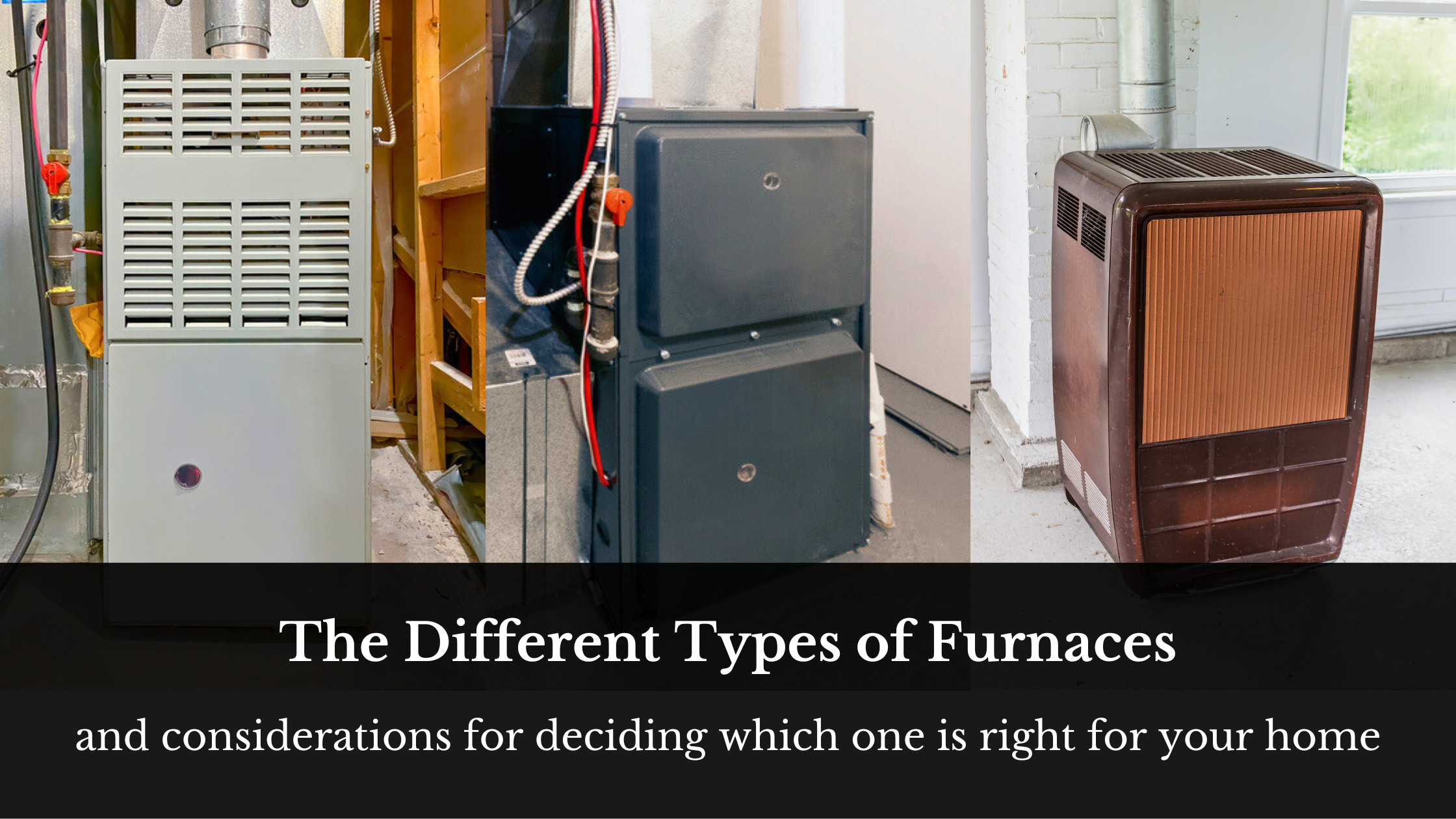When it comes to keeping your home warm and cozy during the winter months, having the right type of furnace is essential. But with so many options available, it can be overwhelming to choose the best one for your needs. In this guide, we’ll break down the different types of furnaces to help you make an informed decision.
WHAT ARE THE DIFFERENT TYPES OF FURNACES?
Gas Furnaces:
Gas furnaces are one of the most common types found in homes today.
They operate by burning natural gas to generate heat, which is then distributed throughout your home via ductwork.
Gas furnaces are known for their efficiency and cost-effectiveness, making them a popular choice among homeowners.
PROS:
High efficiency: Gas furnaces typically have high Annual Fuel Utilization Efficiency (AFUE) ratings, leading to lower energy costs.
Fast heating: Gas furnaces can quickly heat your home, providing comfort during cold weather.
Widely available: Natural gas is readily available in many areas, making gas furnaces a convenient option for homeowners.
CONS:
Dependency on gas supply: Gas furnaces require a constant supply of natural gas, which may not be available in all locations.
Initial cost: Gas furnaces tend to have higher upfront costs compared to electric furnaces.
Carbon emissions: While gas furnaces are efficient, they still produce carbon emissions during combustion.
Electric Furnaces:
Electric furnaces, as the name suggests, rely on electricity to produce heat.
They work by passing electric current through heating elements, which then warms the air that is circulated throughout your home.
While electric furnaces are generally more expensive to operate than gas furnaces, they are often preferred in areas where natural gas is not readily available.
PROS:
Lower upfront cost: Electric furnaces are often more affordable to purchase and install compared to gas furnaces.
Easy installation: Electric furnaces do not require a gas line, simplifying the installation process.
Safety: Electric furnaces do not produce carbon monoxide or other combustion byproducts, making them safer for indoor air quality.
CONS:
Higher operating costs: Electric furnaces typically have higher operating costs compared to gas furnaces, especially in areas with expensive electricity rates.
Slower heating: Electric furnaces may take longer to heat your home compared to gas furnaces.
Reliance on electricity: Electric furnaces are dependent on electricity, so power outages can disrupt heating during winter storms.
Oil Furnaces:
Oil furnaces use heating oil as their fuel source.
Similar to gas furnaces, they burn the oil to generate heat, which is then distributed throughout your home.
While oil furnaces are less common than gas or electric models, they can be a good option for homeowners who have access to affordable heating oil.
PROS:
High heat output: Oil furnaces produce a high level of heat, making them suitable for cold climates.
Energy independence: Oil furnaces do not rely on natural gas or electricity, providing independence from utility companies.
Long lifespan: With proper maintenance, oil furnaces can last for many years, providing reliable heating.
CONS:
Fluctuating oil prices: The cost of heating oil can fluctuate, leading to unpredictable heating costs for homeowners.
Regular maintenance required: Oil furnaces require regular maintenance, including oil filter changes and chimney cleaning.
Environmental impact: Oil furnaces produce emissions during combustion, contributing to air pollution and climate change.
CONSIDERATIONS FOR CHOOSING THE RIGHT TYPE OF FURNACE
Energy Efficiency:
Look for furnaces with high Annual Fuel Utilization Efficiency (AFUE) ratings, as this indicates how efficiently they convert fuel into heat.
Higher AFUE ratings mean lower energy costs and reduced environmental impact.
Size:
Ensure that the furnace you choose is appropriately sized for your home.
A furnace that is too small will struggle to heat your home efficiently, while one that is too large may cycle on and off frequently, leading to increased wear and tear.
Cost:
Consider both the upfront cost of the furnace and its long-term operating costs.
While a more efficient furnace may have a higher initial price tag, it can save you money in the long run through lower energy bills.
Which Furnace Is Best For Your Home?
Choosing the right furnace for your home is an important decision that can impact your comfort and energy costs for years to come. By understanding the different types of furnaces available and considering factors such as energy efficiency, size, and cost, you can make an informed choice that meets your needs and budget. If you need further assistance, don’t hesitate to reach out to our team of experts for personalized advice and recommendations!

